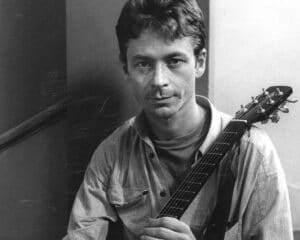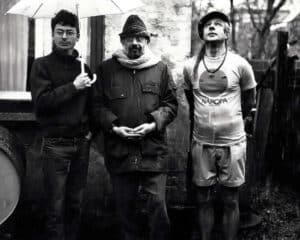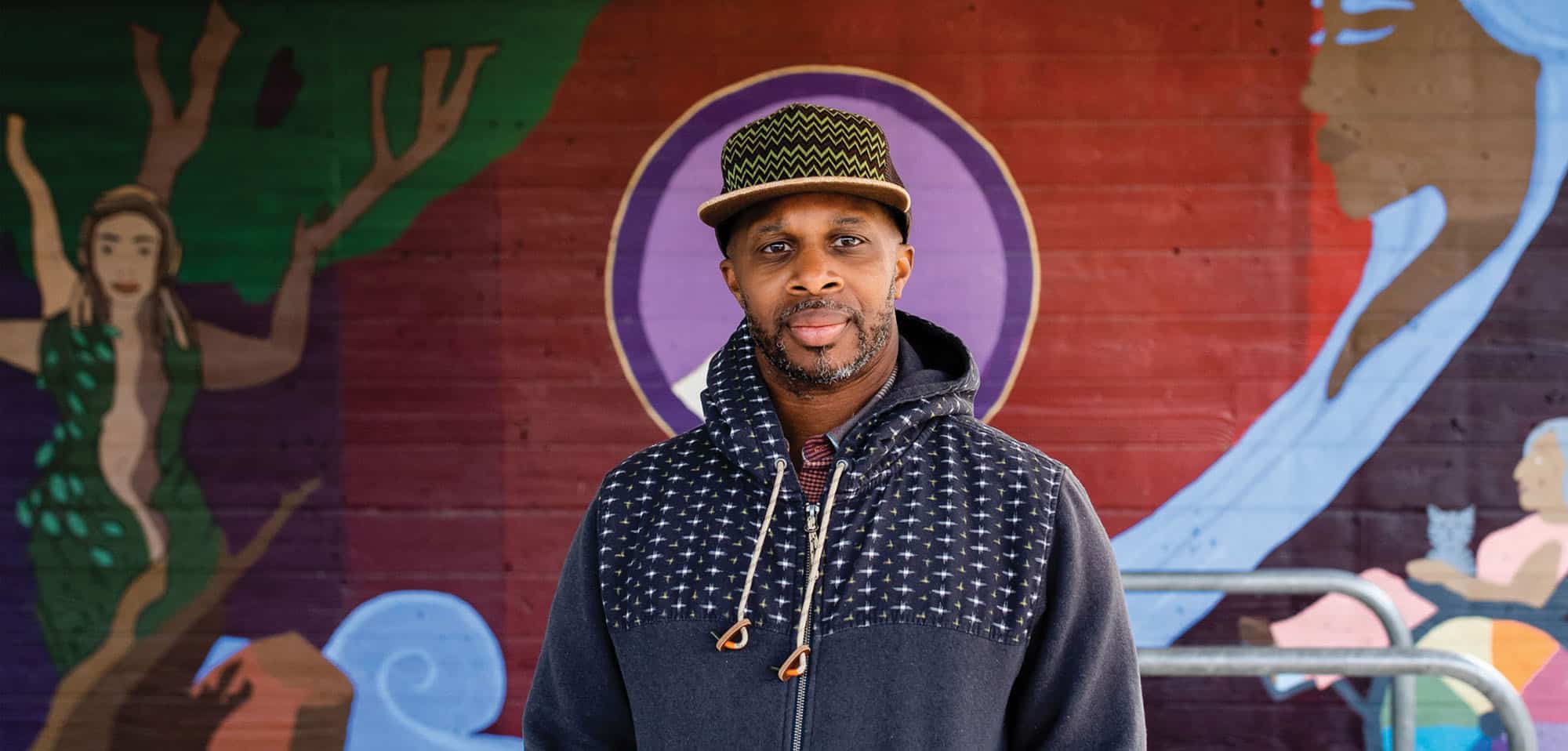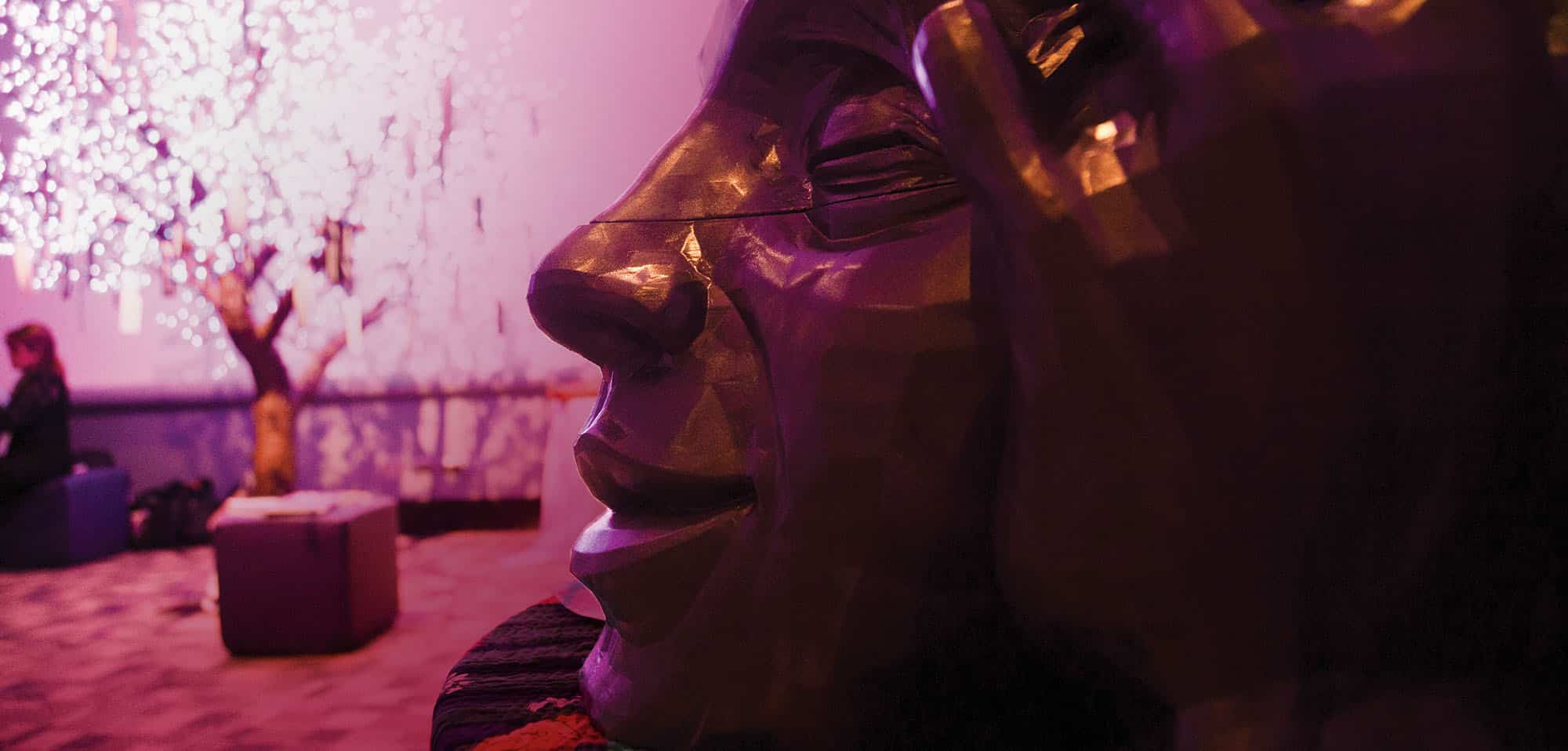It’s synchronicitous that Mark Miller called his piece “This is the Beginning of Time,” because it applies to my experience studying music at Naropa in the summer of ‘79. That four-week program changed my understanding of time.

In the spring of ‘79, I was on tour in Europe with Allen Ginsberg. After three months on the road, we flew direct to Colorado for the summer session at Naropa. My partner Maria Hernandez had gone ahead to set up our apartment at Varsity Townhouses, where the faculty and many of the students lived for the summer session. Hernandez and I were given TA duties in the Summer Writing Program, while she studied dance with Barbara Dilley, and I studied in the music program.
The music faculty is the group Oregon. I have rhythmics with Colin Walcott and Naná Vasconcelos, guitar with Ralph Towner, and ensemble master class with Towner, Walcott, Paul McCandless, and Glen Moore. Colin has made a chart of Indian rhythms, showing how to count them, how the odd number beats turn the time in complex cycles unused in western music until the minimalists picked up on them. We clap and sing the cycles over and over until we know them. Vasconcelos teaches one rhythm for the voice, one for the hands, another for the feet. It’s a kind of stomping clapping dance with vocals. Your mind’s ear says it doesn’t go together until you finally do it and are rewired for time.
The premise of the writing program was taken from Ezra Pound’s idea that you shouldn’t study writing with someone who had not written a significant work. The writers were masters, and the same was true in the music program. They weren’t academics; they were working musicians.
Some writing classes met downtown, in a big room on the upper floor of what is now the Boulder Bookstore, other classes met at Boulder High. On the first day, the music students gathered in the high school auditorium. We were a large group. On the wall there was a long print-out of all the students’ names and their instruments. The Oregon guys organized us into small ensembles, duos, and trios. In the weekly ensemble master class, each student group would play a piece that they had prepared together, and receive critique from the faculty. This format is typical in conservatories.
Another feature of the program was individual lessons. As a player who combined classical guitar and piano with Jazz, Ralph Towner had a unique angle that differed from the approach of my classical guitar teacher. Being exposed to this sort of thing is invaluable for a developing musician.

Additional, informal lessons came from bassist Glen Moore, whose apartment was a couple of doors down from mine. He had a metronome going all day at 40 beats per minute. And he told me he periodically changed the tuning of his upright bass, so he would have to learn the band’s repertoire all over again. The overall impression you got from these guys was their total commitment to music. It’s all they did.
The premise of the writing program was taken from Ezra Pound’s idea that you shouldn’t study writing with someone who had not written a significant work. The writers were masters, and the same was true in the music program. They weren’t academics; they were working musicians.
That summer, for the first time I composed a complete piece of music in my head, without reference to instruments or score paper. The program was only four weeks, but it changed me as a musician. After the Naropa summer, I went back to music school, and sat in on a class with a visiting composer from one of the major conservatories. He said anyone who tells you they write music in their head without reference to an instrument is lying. I guess he’d never been to Naropa. In subsequent years, I got to know Don Cherry, Cecil Taylor, and Philip Glass. Naropa punched way above its weight as a small private college.





